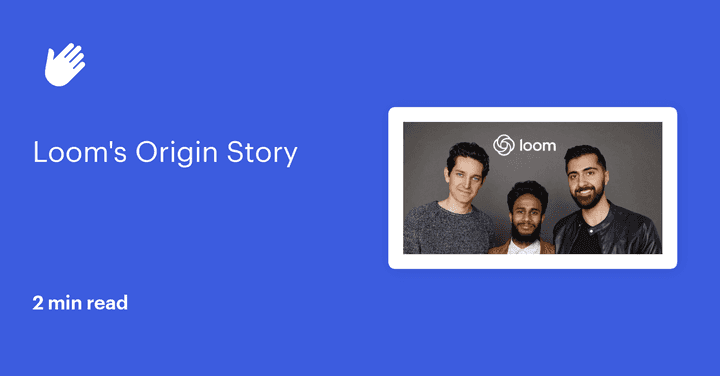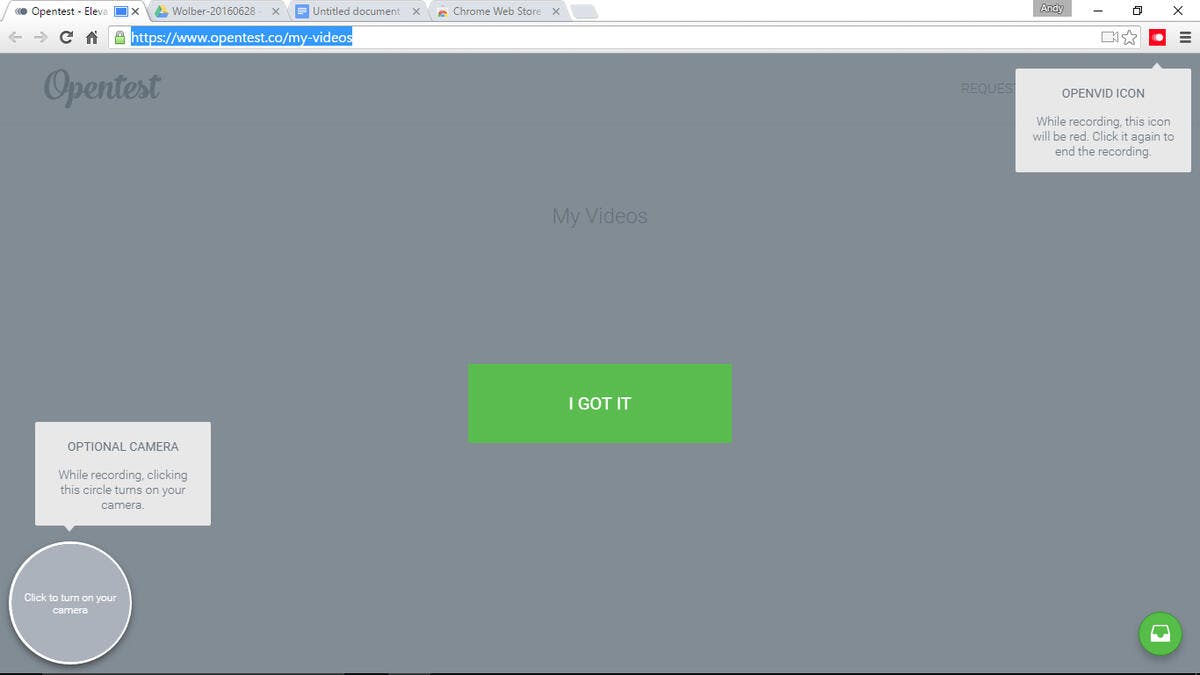Loom's Origin Story

Loom is a video messaging startup valued at more than $1.53 billion today.
However, in 2015 it was a usability testing app with no traction. The following is a story about taking a company through a dark period and teammates sticking together.
Loom's early days
Loom started as a different product than the one you see today.
Co-founders Joe Thomas, Vinay Hiremath, and Shahed Khan jumped into the domain of user testing after a 30 minute meeting. They called it Opentest.
It started as a network of their “expert” friends giving companies product feedback.
The team continued to pour their own money into funding the company. No matter how much they tried, Opentest simply wasn’t catching on. Opentest’s customers didn’t want feedback from the founders’ friends.
Vinay described these early days as "simultaneously the greatest source of joy and crushing anxiety" of his life:
• Opentest, their original product, wasn’t working
• The founders maxed out their credit cards
• They pivoted 4-5 times in 7 months
They were two weeks away from giving up and shutting the company down. Ultimately, the team stuck together because of trust and an equal commitment to success. They worked 16 hours a day (Vinay does *not* recommend this as blanket advice!).
Pivoting to survive
They pivoted the company 4-5 times instead of quitting. One of the pivots?
An extension that helped people record feedback videos showing their screen and face.

They called it Openvid and launched it in Product Hunt, growing from 0 to 10,000+ users in 3 short months.
This growth was enough to catch the attention of investors. Christoph Janz and the team at Point Nine invested in this idea and company, which is now known as Loom.
Doing the thing that scares you
The process of building anything new is scary. Pivoting over and over is scary.
But like Vinay once said: “You have to do the thing that scares the shit out of you for the upside. There might be a downside before the upside. And you have to be okay with that.”
This post was originally shared on Twitter.
Want more inspiration?
Subscribe to our newsletter for inspiring founder stories delivered to your inbox once a month.